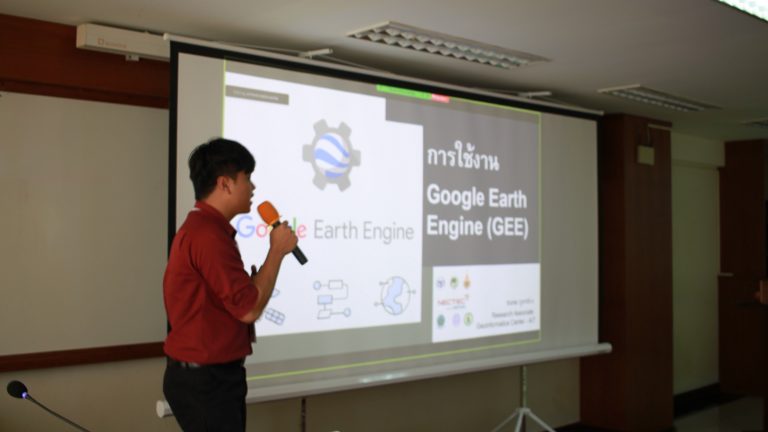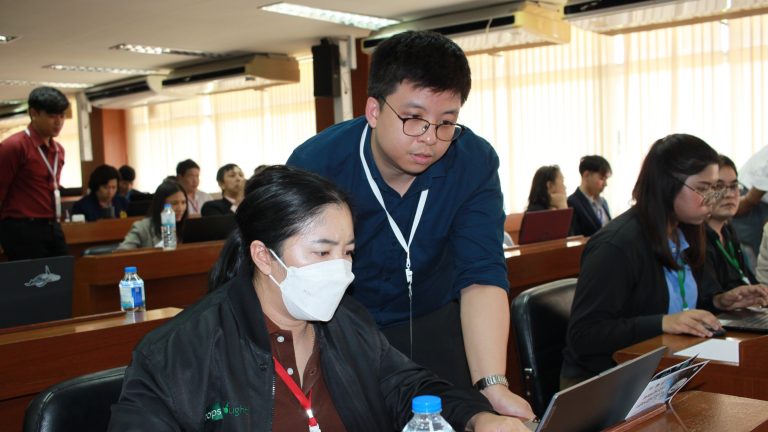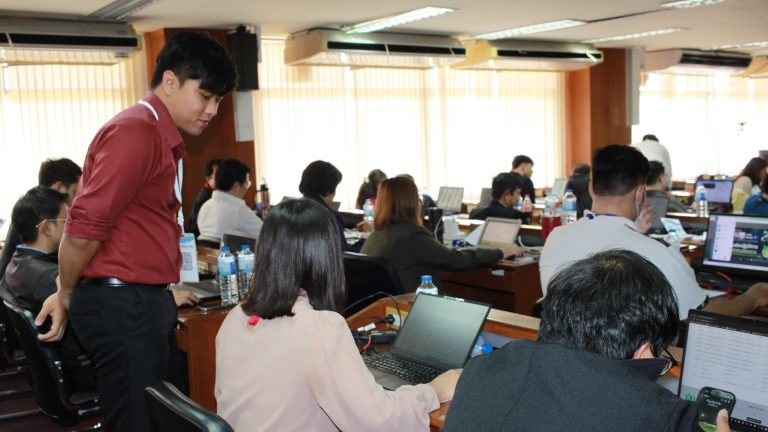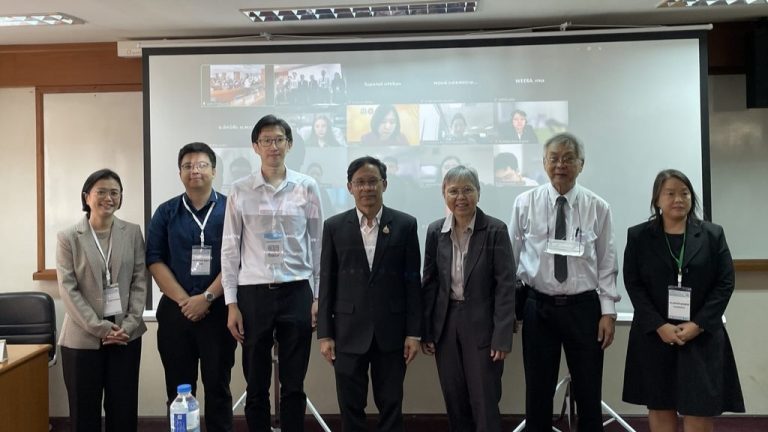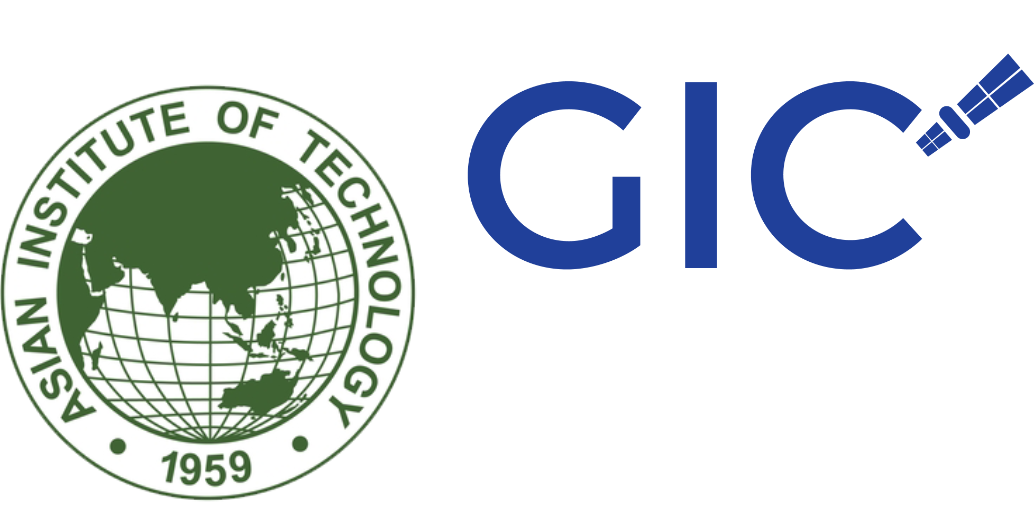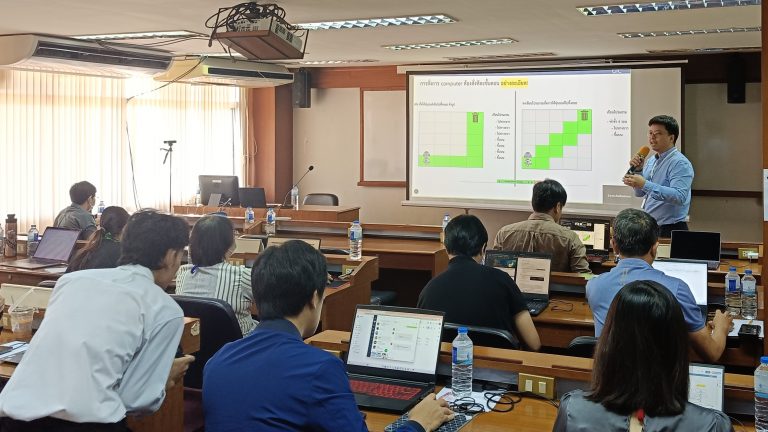
Overview
The Geoinformatics Center (GIC) participated as trainers in the workshop titled “Application of Big Data Hydrometeorological Seasonal Forecasts (THSF) for Water Management and Agricultural Support” held at the Royal Irrigation Department, Nonthaburi, Thailand, from 5-6 June 2025. This workshop focused on the critical role of hydro-meteorological forecasting in preparing for future climate challenges and optimizing resource management. In an era of rapid climate change, accurate forecasting is more vital than ever.
The main objective was to transfer knowledge to researchers who need hydrometeorological data for water management and agriculture (Technical Users) and end users from various agencies, to promote the application of data for decision-making in water and agricultural management under climate variability.
The core of this event revolves around the closing of the research project titled ‘Thailand Hydrometeorological Seasonal Forecasts’, funded by Thailand’s Agricultural Research Development Agency. This innovative system provides high-resolution forecast data (0.01 degrees, or ~1 km) across Thailand, with predictions extending from one week up to six months in advance. This localized data empowers better planning for both surface and groundwater irrigation, ensuring water aligns with crop growth stages and seasonal availability. Ultimately, it aims to enhance water resource management quality and improve agricultural operations.
GIC’s Role
GIC Research Specialist, Dr. Kittiphon Boonma, a member of the project research team, gave training on how to process THSF’s data using Python on the Google Colab platform. Along with GIC Research Associate, Mr. Thanaphol Boodchuang who provided training on how to process THSF’s data on Google Earth Engine platform.
Our team facilitated group discussions among workshop participants to convey techniques for applying advanced hydro-meteorological data in forecasting through Python and Google Earth Engine, based on their primary data application objectives. This aimed to equip participants with the necessary knowledge and skills to maximize data utilization.
Some of the important outcomes of this workshop were:
- Enhanced Knowledge and Skills for Data Utilization for technical users (researchers) and end users (Water & Agricultural Managers, Farmers)
- Strengthened Collaboration and Networking
- Promotion of Data-Driven Approaches
